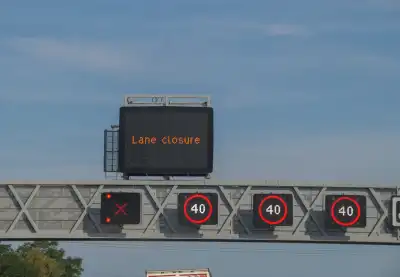
Car crash victims can expect quicker and larger compensation payouts following a significant court ruling against insurers regarding how claimants should be reimbursed.
The Supreme Court's decision also means that a backlog of thousands of cases can now proceed towards settlement. However, this decision might lead to higher car insurance premiums, or at least prevent any decrease in prices, considering they averaged £543 in 2023.
Here's a breakdown of how this decision affects your crash compensation:
What does the Supreme Court decision mean for me?
The Supreme Court ruled this week that injuries resulting from car accidents, encompassing both whiplash and other ailments like wrist or hip injuries, should warrant separate payouts from insurers, adjusted downwards if there's any overlap. In practical terms, this translates to increased overall compensation for drivers injured in multiple ways. Had insurers prevailed, the compensation for non-whiplash injuries would have been subject to a cap similar to the current one for whiplash.
What is the whiplash claims cap?
Since 2021, payouts for whiplash claims have been capped using a predetermined tariff, starting at £240, with only the most severe cases exceeding £5,000. This tariff was introduced as part of reforms advocated by the Association of British Insurers (ABI) in response to what was seen as a proliferation of fraudulent and costly whiplash claims.
The reforms also introduced an Official Injury Claim portal aimed at expediting whiplash compensation payouts and reducing the need for claimants to engage lawyers, although the majority still do.
Why are mixed injury claims under scrutiny?
The whiplash reforms did not cover payments for any other type of injury. With reduced payouts for whiplash, injured drivers began claiming compensation for other injuries they might have overlooked when payouts for neck injuries were higher. This posed a dilemma for insurers since payouts for non-whiplash injuries were not capped and could potentially be higher.
In January 2023, the Court of Appeal dismissed insurers' appeals in two test cases, Briggs and Rabot, meaning that individuals with mixed injuries could claim full compensation for non-whiplash injuries and capped payments for whiplash.
The ABI appealed this decision to the Supreme Court and lost. The trade body argued that insurers would end up paying higher claims due to the 'double counting of injuries'. An ABI spokesperson said: "We're disappointed by the Supreme Court's decision to uphold the Court of Appeal's judgment on the mixed injuries test case. We supported these test cases in the interest of clarity for claimants and defendants alike.".
What does this mean for car insurance premiums?
Stuart Hanley, head of legal practice at Minster Law, said that insurers may already have been factoring losing the Supreme Court into their premium prices. Hanley said: "Given the way the Court of Appeal decision went, you would imagine that insurers were already factoring this into their pricing." With certainty from the Supreme Court decision, insurers might now have the opportunity to reduce premiums.
Matthew Maxwell Scott, executive director of the Association of Consumer Support Organisations, said: 'It's good news that the wheels of justice have moved quickly here.
"With the judgment affecting hundreds of thousands of people each year, the huge backlog of cases can now start to be cleared and people get the compensation they are due. Moreover, insurers will be able to reserve more accurately and use this to bring average premiums down from their record highs.'"
However, insurers have indicated the possibility of raising premiums following the Supreme Court ruling.
An ABI spokesperson stated, "The outcome risks undermining the intention of the whiplash reforms. Motor insurers are striving to maintain competitive pricing, but this decision may exacerbate the cost pressures they are already contending with. We will collaborate with our members to evaluate the impact of the judgment, in addition to the measures outlined in our 10-point roadmap aimed at addressing motor insurance expenses."




